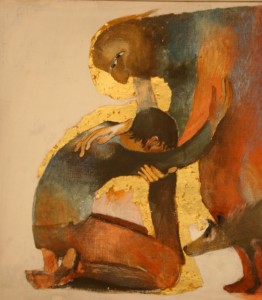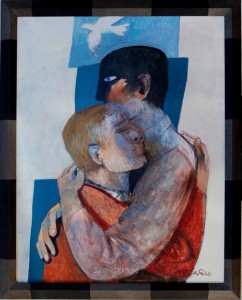 Jean Monbourquette wrote in his book on the art of forgiving: ‘For more than three years I was involved in an attempt to heal a wound to my affections. I thought that I had found a miraculous solution to all my bitterness in a forgiveness that was imposed solely by my will. But such was not the case. I did not manage to find the inner peace that I so sought’. And this experience led him to explore the dynamics of forgiveness and to understand why ‘despite all my good will and my great efforts’ he did not manage to free himself from his resentment and to achieve true forgiveness.
Jean Monbourquette wrote in his book on the art of forgiving: ‘For more than three years I was involved in an attempt to heal a wound to my affections. I thought that I had found a miraculous solution to all my bitterness in a forgiveness that was imposed solely by my will. But such was not the case. I did not manage to find the inner peace that I so sought’. And this experience led him to explore the dynamics of forgiveness and to understand why ‘despite all my good will and my great efforts’ he did not manage to free himself from his resentment and to achieve true forgiveness.
It falls to all of us at certain moments in our lives to forgive and to be forgiven. We need this. Without forgiveness, we would end up by remaining ‘bound like ivy’ to the wrong that was done or endured, in an endless vicious circle…
As regards forgiveness, there are false ideas which must be unmasked. I will now list some of them:
To forgive does not mean to forget, indeed it involves a good memory, a careful knowledge and assessment of the offence; to forget, for that matter, is not a question of will: the more one strives to forget the more one obtains the opposite effect.
To forgive does not even mean to deny: faced with great suffering in our minds we defend ourselves by removing what happened and making it disappear magically from our consciousness; forgiveness is not possible without calling the offence (and offender) by their names and being aware of the suffering that has been produced.
To forgive does not depend solely on an act of will: emotions, assessments, meanings, values, decisions and forms of behaviour are involved in forgiveness; the will is important but it is not on its own sufficient.
To forgive is not even something that can be imposed: forgiveness is a free act; the commandments, too, function if they are adopted by an individual through a ‘free’ act of will.
To forgive does not mean to going back to what we were: nothing can be ‘as it was’, something important took place and left a mark behind it; it changed not only the relationship with  the person who offended us but also ourselves; to pretend that nothing happened, that there was no offence, putting it under a stone, does not work. Under that stone everything can remain as it was and the relationship runs the risk of being re-established on the basis of a lie: the surface made up of kindness is new but the anger, deep down, is as it was before and will find its outlets, even if they are masked.
the person who offended us but also ourselves; to pretend that nothing happened, that there was no offence, putting it under a stone, does not work. Under that stone everything can remain as it was and the relationship runs the risk of being re-established on the basis of a lie: the surface made up of kindness is new but the anger, deep down, is as it was before and will find its outlets, even if they are masked.
To forgive does not mean forgoing one’s rights: a forgiveness that does not fight injustice runs the risk of tolerating oppression and perpetuating crimes; it is not a sign of strength – it is a sign of weakness.
To forgive another person does not mean to justify or excuse him or her: justifying and excusing can be (at times) a psychological manoeuvre to attenuate one’s suffering, but it can also be a sign of a lack of esteem for the person who has offended us, who is treated as one who is not guilty because he or she is a ‘poor thing’: the reason for his or her behaviour is that ‘he or she was not himself or herself’
To forgive does not involve demonstrating one’s own moral superiority: certain ways of forgiving end up by humiliating the other person in the form of the ostentation of one’s own moral greatness compared to the ‘baseness of the other person’, a subtle form of arrogance which seeks, in a more or less conscious way, to conceal one’s humiliation, a pharisaic thanks at being not ‘like them’.
To forgive is not to offload onto God the responsibility for forgiving: hurrying to delegate God with the task of forgiving the person who has offended us can be a flight from being aware of what really happened and accepting our own responsibilities; God does what He does but we must not grip Him by the lapels or use His name in vain.
Forgiveness is a complex phenomenon, a process that appeals to all the faculties of a person, a journey that needs time.
Ridding oneself of the false ideas and myths about forgiveness is the first step in beginning to know about it in a better way and being able to practise it.














Camillians on Facebook
Camillians on Twitter
Camillians on Instagram